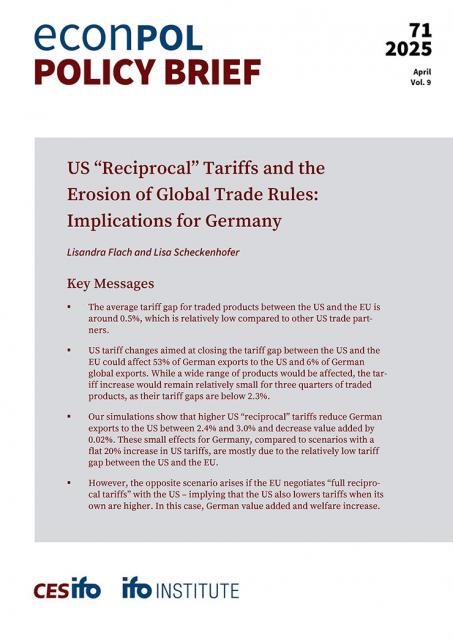News Archive

What Works? Regional Effects of Universities
|
EconPol Forum
| News
Higher-education institutions positively influence the development of individual regions in various ways: they have a positive effect on the share of graduates in the region, on the region’s employment in high-tech and knowledge-intensive industries, and on long-term wages. However, the positive effects do not emerge automatically and everywhere to the same degree.

How Do Taxation and Regulation Affect the Real Estate Market?
|
EconPol Forum
| News
In the past decade, housing costs have risen tremendously. While real estate prices in Germany have increased by around 50percent, major cities have experienced an even stronger surge. Likewise, rents have substantially increased, particularly in major cities. The Big Date article in the new EconPol Forum 5/2022 provides an overview of four projects that assess the effects of regulation and taxation as well as the pandemic’s impact on the German real estate market, using large-scale property price as well as survey data. Do subsidies make housing purchases more affordable?

European Labor Markets: How Can We Effectively Manage Technological and Structural Change?
|
EconPol Forum
| News
In this issue of the EconPol Forum, our authors discuss how Europe can more effectively address all these challenges and solve the associated labor market problems caused by rapid structural change. The authors also provide helpful policy recommendations for national governments and EU companies.

Reactions to Supply Chain Disruptions: Evidence from German Firms
|
Policy Brief
| News
Since the outbreak of the Covid-19 pandemic, the configuration of international supply chains has received increased public attention. Pandemic-related disruptions in production and transportation have led to questions about the reliability of international production networks. Moreover, the war in Ukraine and the associated sanctions against Russia have cast a new light on the geopolitical significance of economic interdependencies with autocratic regimes. How do firms react to these developments, and have they already adjusted their sourcing strategies?

CESifo Forum is now EconPol Forum
|
EconPol Forum
| News
In September 2022 the CESifo Forum was reshaped under the new EconPol brand. The new EconPol Forum is structured into four sections. The first, Policy Debate of the Hour, recognizes the constantly evolving nature of policy challenges, focusing on the most pressing issues of the times. Leading researchers are invited to share their insights and policy conclusions.
